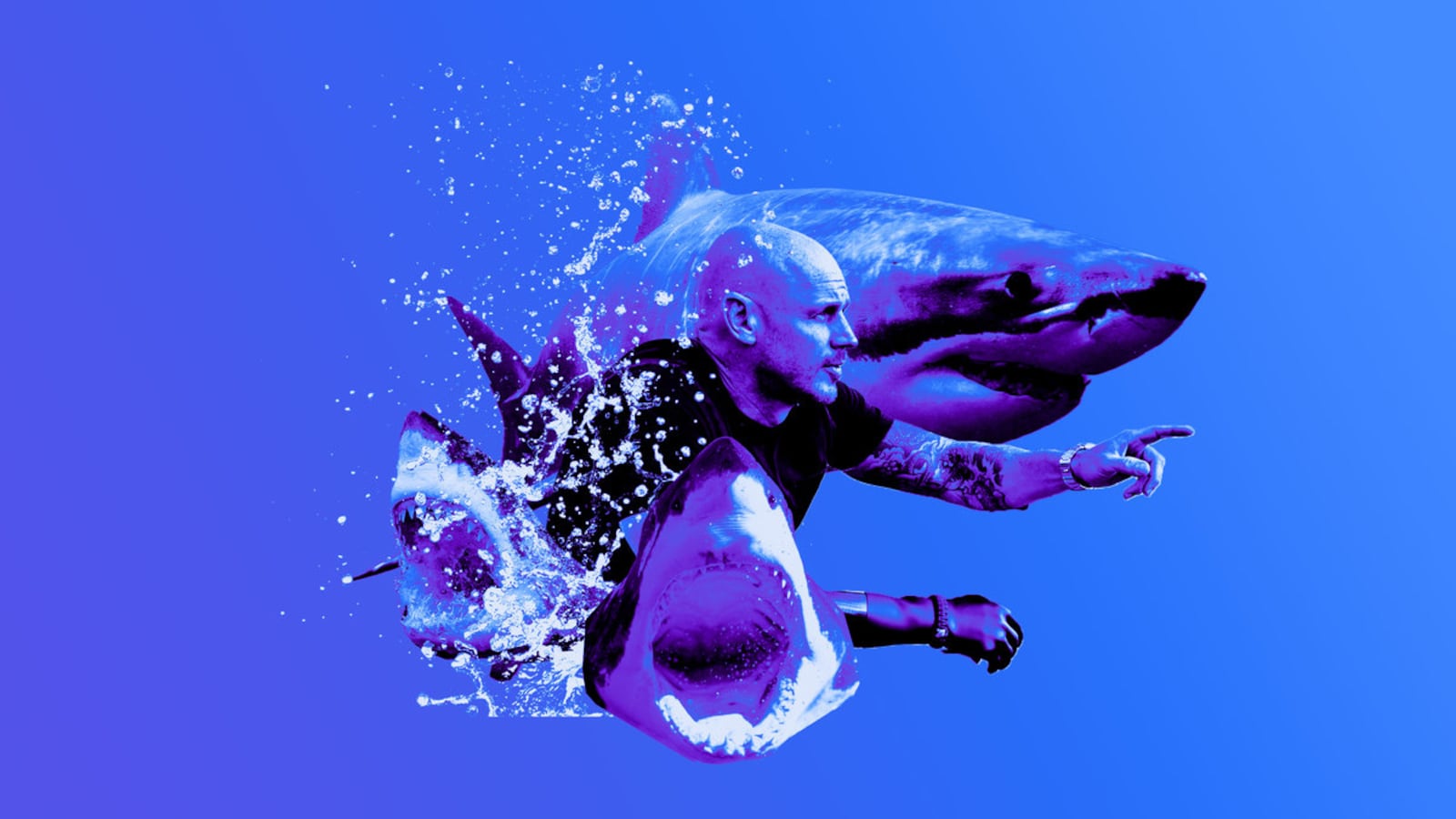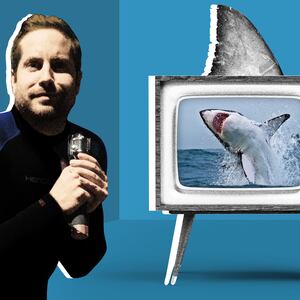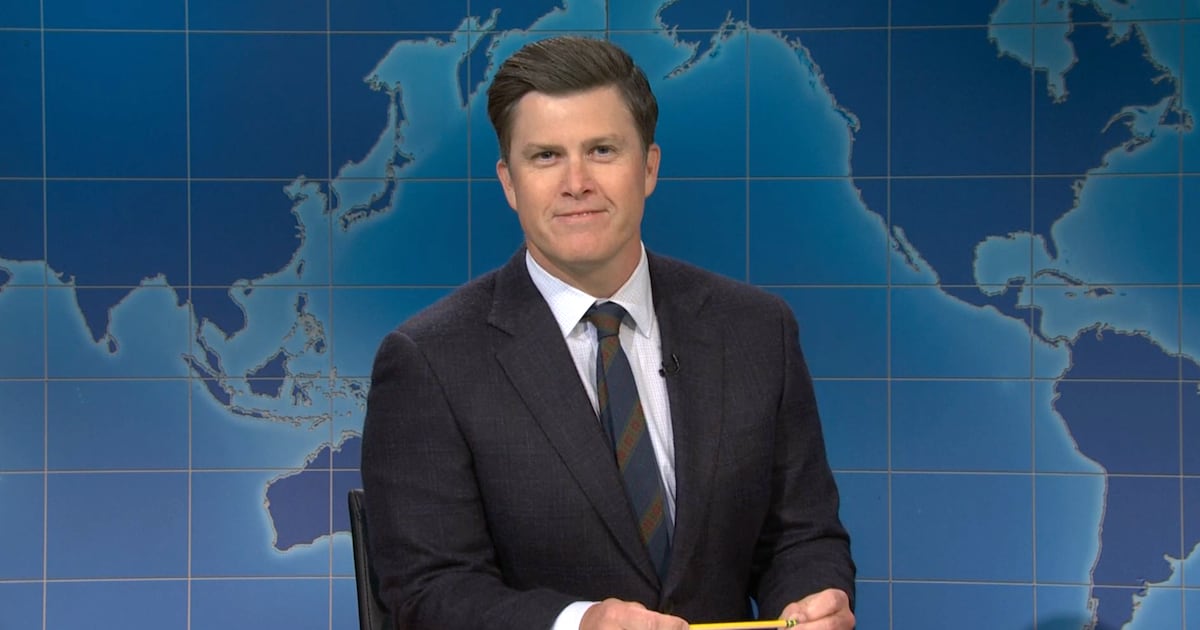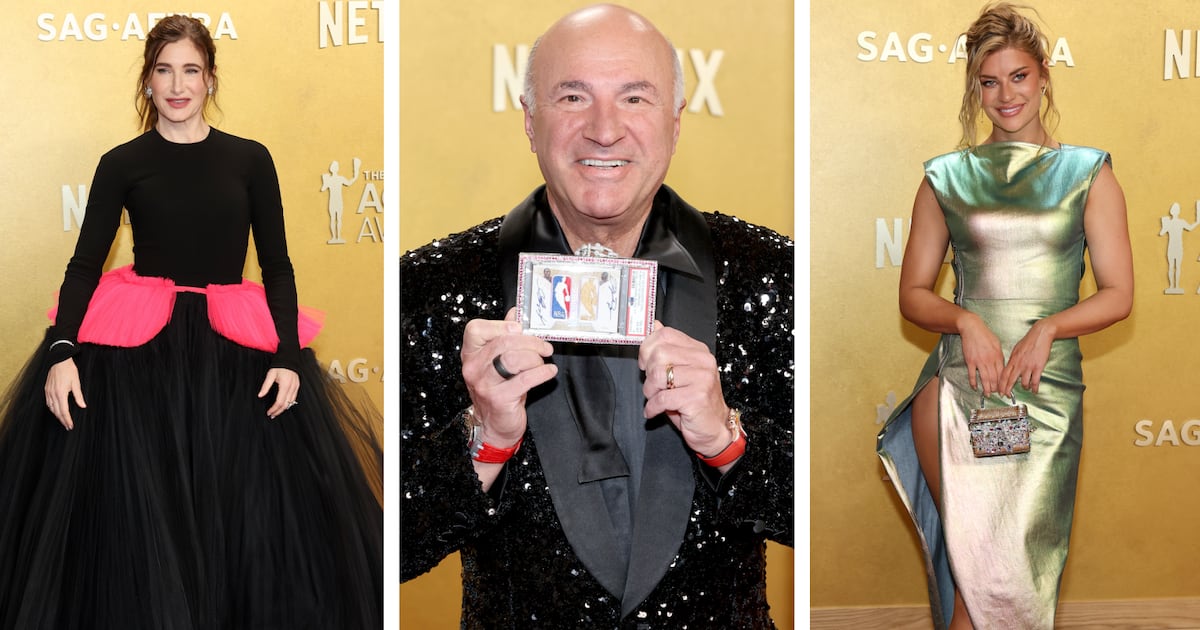Not to be a fearmonger as we head into the end of the beach season, but did you know that there have been five reports of shark attacks along the coast of New York and Long Island in the last several weeks? Or that, in a move that has been somewhat unprecedented, Rockaway Beach—one of the most crowded destinations for New York City water-lovers—closed twice in the span of a week because of shark sightings?
Timing is everything, and, as Discovery unfurled its 34th rendition of its annual Shark Week lineup of programming this week, the timing was uncanny. Uncanny as in disastrous, or uncanny as in fruitful? That seems to be a matter of opinion.
“They are the best and the worst of a PR client,” Paul de Gelder, a shark attack survivor, advocate, and TV personality across various Shark Week specials, tells The Daily Beast. “We talk about how amazing they are and how they're not after humans, and then they go and bite people. You’re just like, ‘C’mon, guys. Like, work with me…’”
(For what it’s worth, ratings for the first week of Shark Week programming are up year-over-year for the first time since 2017.)
Over the years, de Gelder has starred in more than 20 Shark Week programs. He’s gone diving without a cage with a quartet of 14-foot great whites. He’s taught Will Smith, Mike Tyson, and Ronda Roussey to dive with sharks. He parachuted into the Pacific with no rations to spend two days and two nights living amongst a group of sharks.
“Discovery Channel doesn't send me to the safe sharks,” he laughs. “They only sent me the things that could kill me.”

This year, that means paddling an inflatable kayak through an area off the coast of Southern California, where groups of juvenile great white sharks swim peacefully among paddle boarders and surfers. “They'll swoop right up and under people on their surfboard and they'll swim next to people that are swimming, and yet no one gets bitten. We wanted to go out there and just show people a little bit of that,” he says. “Just show that they're just swimming around doing their Sharky thing. They're just trying to live their life. We should respect that.”
The footage appears in a clip show titled Tracy Morgan Presents: Sharks!, hosted by the former 30 Rock star and currently available on Discovery+. Morgan introduces de Gelder as a “badass shark finder,” which is about as accurate as a histrionic superlative could be. From Australia, he’s a former Navy diver, a paratrooper, and a vegan environmentalist. (Morgan harps a bit on that last descriptor, and a shirtless photo of de Gelder that flashes on screen reveals why.)
Still, of all the people to be involved with Shark Week—you’ve already read names like Tracy Morgan and Mike Tyson in this piece—a “badass” like de Gelder might be the most unexpected.
In 2009, de Gelder was participating in counterterrorism training for the Australian Navy in the Sydney Harbor, when he was attacked by a 10-foot bull shark. The shark completely bit off his right hand and his right leg. Yet—and some might consider inexplicably—he has since not only returned to the water, but become a staunch advocate for shark protection, continuing to risk life and literal limb by swimming with them again. Which is to say: What in the world?!?!
“Honestly, I chose a pretty dangerous life anyway, so it was either going to be my motorcycle, a bomb, a diving accident, or parachuting,” de Gelder laughs. “It could have been any one of those things. At least this way, I got a cool story.”
Listening to him tell that story is chilling, especially after having just watched him in videos surrounded by sharks again.
He was in the water within eyesight of the Sydney Harbor Bridge, so not even out in uncharted or particularly “unsafe” areas. The military was doing research and development on new unmanned video and sonar tools. This was a mundane part of the training. All de Gelder had to do was swim from point A to point B to board a boat.
He was on the surface on the water on his back, looking up at the sky when a 10-foot bull shark grabbed him by his right hamstring and right hand in the same bite. He went into a panic, he says. “It's kind of like when you walk through a spiderweb. You’re like, ‘Ahh! Get off me!’” He tried to fight the shark off, but there was nothing he could do. The shark had his hand, so he couldn’t do the things you’re told to, like “go for the gills” or punch it in the nose.
“The pain was just so horrific that it took all the fight out of me,” de Gelder recounts. “Then it took me underwater and just kept shaking me and shaking me, ripping the flesh off of my body.” He’s gotten a lot of questions since about whether the attack hurt. The answer: “Yes, it hurts when something is ripping you apart.” He thought he was going to die.
Eventually, the shark ripped off his leg and his hand. Because his wetsuit made him buoyant, he floated back to the surface and, with one hand and one leg, swam through a pool of his own blood to the boat. “The shark wasn't attached to me anymore. I guess it was swimming off swallowing parts of my body.”
There are those of us who watch Jaws once and are too afraid to get into a bathtub, let alone the ocean. There are those of us who are going to read de Gelder’s story and pledge to never allow our bodies to be wet again. It’s as mystifying as it is fascinating, then, that de Gelder is still so involved with sharks after experiencing such a trauma.
“I never claimed to be that smart,” he laughs. But then he gets serious: “I don't believe in letting the things that you're afraid of stop you from doing the things that you love. And I love being in the ocean. I love being in the water.”
In the aftermath of the attack, he had no interest in learning about sharks. He was focusing on his recovery and wanted to get back to work. But his incident was a major media story, as one could imagine. When there were more attacks in Australia, he kept getting contacted for comment and to make TV appearances. Eventually, he thought that he should learn a bit more about the topic.
“I started doing my research and realized how few people actually get bitten,” he says. “And how many sharks we kill every single year needlessly. It made me wonder, you know, who is the real monster? Certainly not a shark.”
That’s why he’s been glad to get involved with Shark Week. It’s a celebration of sharks and everything that makes them cool and mythical. Who doesn’t love footage of great whites leaping into the air, or the stunning wildlife sequences of them gnashing their teeth while on a hunt? But it’s also about education; the Shark Week programming does a great deal of that. But, de Gelder says, it’s also down to us to learn about ocean safety, to prevent these attacks from happening and to conserve the shark population.
He marvels about how often there will be reports of a swimmer attacked by a shark at a beach that is known for the presence of sharks. “Someone will get bitten and people will be in the water one or two days later. Kind of natural selection…” He laughs again. “Just stay out of the water for a little while! Give it a break. Let the sharks do their thing and then it'll probably be safe for another year.
“So it's human ignorance, miseducation from the movies, and the media sometimes,” he says. “We have the wealth of the world's knowledge within a few keystrokes. We’ve got this incredible thing called the internet. There's no reason not to know something and not to implement as much safety in the ocean as possible.”
It's an admirably enlightened perspective considering what he’s been through. But after talking with de Gelder, perhaps that shouldn’t be surprising. This is someone, after all, whose understated first words to describe his shark attack were, “That was a pretty bad day at work.”







